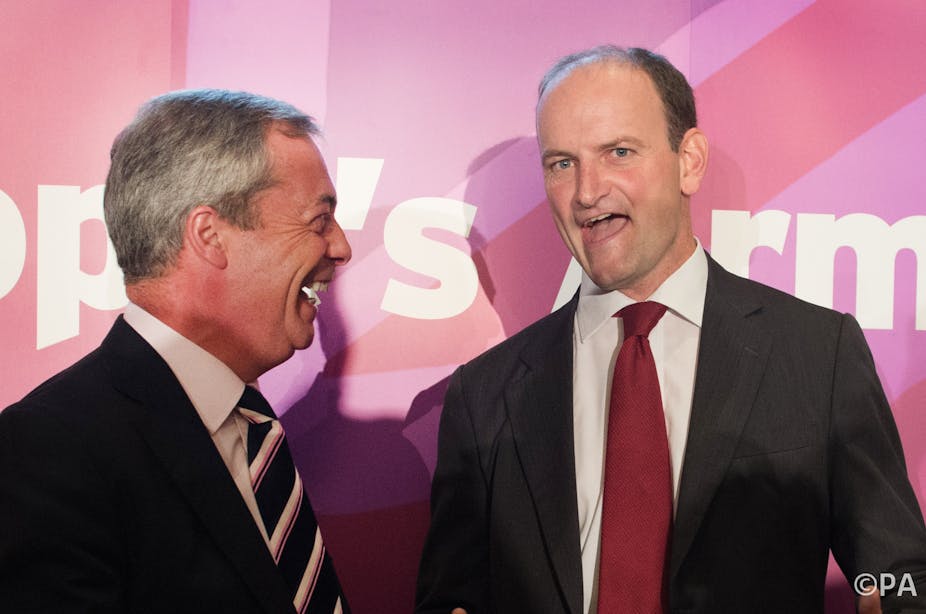David Cameron has not had a good summer. He has received widespread criticism for not responding quickly enough to the humanitarian crisis in Iraq, the resignation of two of his ministers (Sayeeda Warsi and Mark Simmonds) and been caught in the middle of the dispute surrounding the appointment of the next House of Commons clerk.
Now, with just 250 days until the general election, he is having to deal with the fall-out from the news that radical backbencher Douglas Carswell has defected to UKIP, triggering a time consuming by-election that no one in the party would have wished for.
The response of the Conservative Party leadership over the next few weeks will be crucial. First, Cameron will need to be more in touch with his backbenchers. Carswell’s defection has clearly been on the cards for some time, with UKIP leader Nigel Farage telling BBC Radio 4 that he first discussed the move with him 18 months ago. Conservative campaign headquarters clearly had no inkling of imminent movement though, having posted invitations to a drinks reception with Carswell shortly before the news broke. If Carswell had gone 18 months ago it would have been difficult for Cameron but not a disaster. But with so little time until the general election the party cannot afford any more surprise announcements like this.
Second, Cameron will need to give more substance to his plans for renegotiating Britain’s relationship with Europe. Carswell accused the Prime Minister of failing to be “serious” in his proposals for European reform and of having “made up his mind” that Britain should remain in the EU.
Publicly the party has been on the defensive. Cameron called Carswell’s decision “counterproductive” and attention is being drawn to an old tweet posted by Carswell about his support for Cameron’s stance on Europe.
But the party will need to go on the offensive soon and that will be much harder. Fighting a by-election against Carswell in a constituency where he is already very popular is going to be tough. Carswell received 53% of the vote in 2010) and reports suggest he has his own database of supporters, separate from that maintained by the Conservative party. He is already going into this by-election much better resourced than the average UKIP candidate.
And so, most obviously, Cameron needs to make sure that the Conservatives hold Clacton convincingly this autumn. It is unusual for the incumbent to be standing in a by-election and the Conservatives’ recent record in by-elections is mixed. Although they held Newark earlier this year, they were swept away in the Corby by-election of 2012 following the resignation of Louise Mensch.
Adding a parliamentary win like this to UKIP’s success in the European elections this year could signal a momentum that Cameron would find very difficult to stem.

